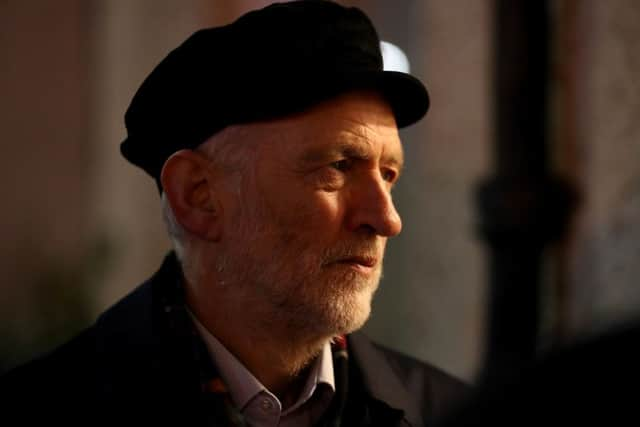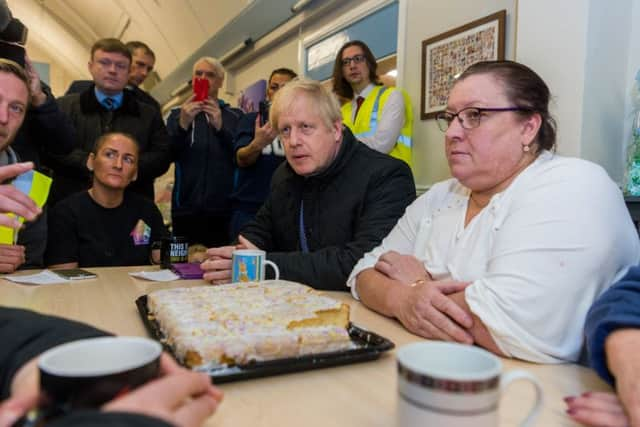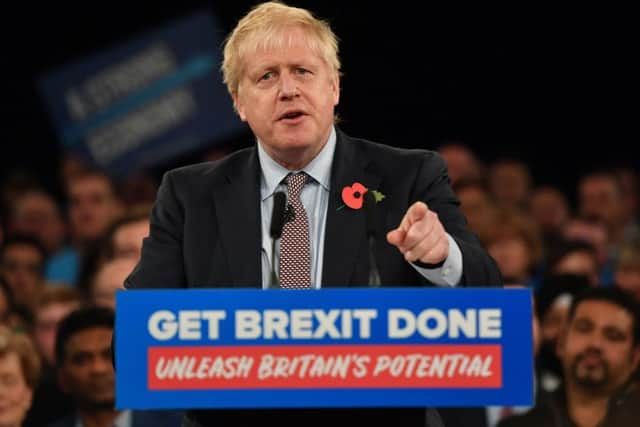Is Labour and Jeremy Corbyn’s Brexit confusion is the ‘cut through’ moment of the general election so far? – Bill Carmichael
Sure, if their taxes go up or they have to wait 10 days to see their GP, they will become engaged and perhaps angry. But most of the time – even during significant election campaigns such as this one – the thought rarely troubles them.
Advertisement
Hide AdAdvertisement
Hide AdThis isn’t because they are stupid or they don’t care, but because they have other priorities they consider more important – putting food on the table, helping the children with homework, buying Christmas presents and watching Coronation Street. Normal people getting on with their lives.


So if – like me – you are one of those freaks carefully checking the latest opinion polls and assessing the daily ups and downs of the rival campaigns, you have to accept you are probably in a minority.
The truth is most of it doesn’t matter and will, in all likelihood, make little difference to the result next month. Take for example the ridiculous, and frankly irresponsible, bidding war over the NHS this week. The rival parties shouting over who will spend the most tend to cancel each other out and become background noise that sceptical voters can tune out with a shrug of the shoulders.
Advertisement
Hide AdAdvertisement
Hide AdThat is why party leaders keep repeating the same slogans and soundbites over and over until those of us who do take an interest are screaming with boredom.


Doorstep canvassers say that when eventually a voter finally repeats a party slogan back at them – “Let’s get Brexit done!” or “For the many and not the few!” perhaps – they finally know the message is resonating with the public.
But in every election there are those “cut through” moments – brief instances of searing clarity that emerge through the fog of battle.
Advertisement
Hide AdAdvertisement
Hide AdSometimes these events seem insignificant at the time but they somehow illustrate a deeper truth about the character of the politicians asking for our votes.


Think, for example, of Gordon Brown’s unguarded “bigoted woman” comment that took a wrecking ball to Labour’s 2010 campaign.
Have there been any this time around? Perhaps the withering put down of the Prime Minister – “You took your time, Boris” delivered by an angry householder in flood-hit South Yorkshire?
Or maybe Jeremy Corbyn being ushered away surrounded by minders after a man in Glasgow charged him with being a “terrorist sympathiser” adding “aye, he’s running away” as the Labour leader scuttled off.
Advertisement
Hide AdAdvertisement
Hide AdWhen the voter stands in the polling booth, stubby pencil in hand, it is these “cut through” moments that bob to the surface of the memory and help decide where the cross is placed on the ballot paper. Time will tell what gains traction with the public and it is often things you least expect.
Another factor is the way social media is skewing the campaign. Take the almighty row when the Conservatives were caught doctoring a TV clip to make it seem that Labour’s Sir Keir Starmer was stumped at the end of an interview on Brexit.
This was widely seen as a terrible gaffe, but I understand the Conservatives were secretly delighted. Why? Well, firstly because the clip was seen over a million times, largely because it was shared on social media by Labour supporters who thereby unwittingly reinforced one of the Tory’s key campaign messages.
What the video shows, doctored or not, is one of Labour’s better media performers failing completely to present a coherent approach to the EU. The overall impression of the video is not of Conservative duplicity, but of how utterly clueless Labour are when it comes to Brexit. The lesson here is that the social media gurus don’t care whether you agree with the content or not, as long as you keep clicking that all-important share button.
Advertisement
Hide AdAdvertisement
Hide AdThe key to this election appears to be whether Boris’s blue wave can breach Labour’s red wall – the Leave-leaning, Labour-held constituencies in the North and Midlands.
I have some doubts. Yes, party loyalties have loosened over recent years, but the default for many in these areas is still “I always vote Labour, because my family have always voted Labour”. It is going to take something pretty seismic to make them change their minds.